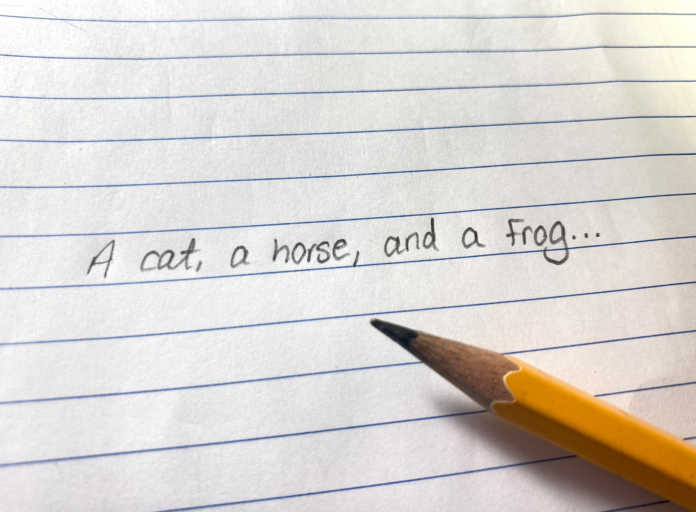Natalie Elskamp
Staff Reporter
Ask a writer if they think pineapple belongs on pizza, and they will probably have an opinion to share. Ask a writer whether or not it is appropriate to use the Oxford comma, and ‘opinion’ might be too mild a word.
What is the Oxford comma, exactly? It is simply another term for the serial comma, which is the comma that goes after the penultimate item in a list containing three or more items, just before the word ‘and’ or ‘or.’
For example, the sentence “Sally has a cat, a pony and a frog” can alternatively be written as “Sally has a cat, a pony, and a frog.”
Some English style guides have rules strictly requiring or forbidding the use of the Oxford comma; others do not. In any case, there is no shortage of strong opinions on the matter. Some writers find the comma superfluous and so reject it, while others argue that since a natural pause exists after the penultimate item in a list, it should be used.
Similarly, some argue that the Oxford comma enhances the clarity of writing, while others argue that it weakens it. Still others rightly recognize that both of these things are more or less true—it all boils down to the sentence in question.
In arguing for their position, a supporter of the Oxford comma might construct a sentence like this: “I dedicate this book to my parents, Rachel and Jeff.” Here, it is confusing to omit the comma. Are Rachel and Jeff the writer’s parents, or are they separate individuals?
The objection to this is that if Rachel and Jeff were the writer’s parents, they would have used a colon, not a comma, after the word ‘parents.’
Conversely, an opponent of the Oxford comma might point to a sentence like this: “My father, Jeff, and Rachel went to the bar.” Here, it is confusing to include the comma. Is Jeff the writer’s father or again another individual?
An objection here is that if Jeff were the writer’s father, the writer would have (or at least could have) used long dashes in place of the commas.
Wait—now we are in the same position as before! If using the Oxford comma is problematic as is refraining from it, and yet there are ways to get around these potential problems either way, then who is correct? Should we be using it or not?
The answer may be disappointing: it really all comes down to individual, and more often institutional, discretion. Writers generally prefer to keep clutter to a minimum, and clutter is anything that provides no added value in a sentence; whether or not the Oxford comma adds value is, and will remain, the question.
Above all, consistency is important. In prior issues of The Mast, consistency with the Oxford comma was not always enforced. Expect that to change going forward. In light of a recent debate—erm, deliberation—in The Mast meeting room, the editors have agreed to do away with it.
Editor’s note: No the editors did not “agree,” Nolan did.

















